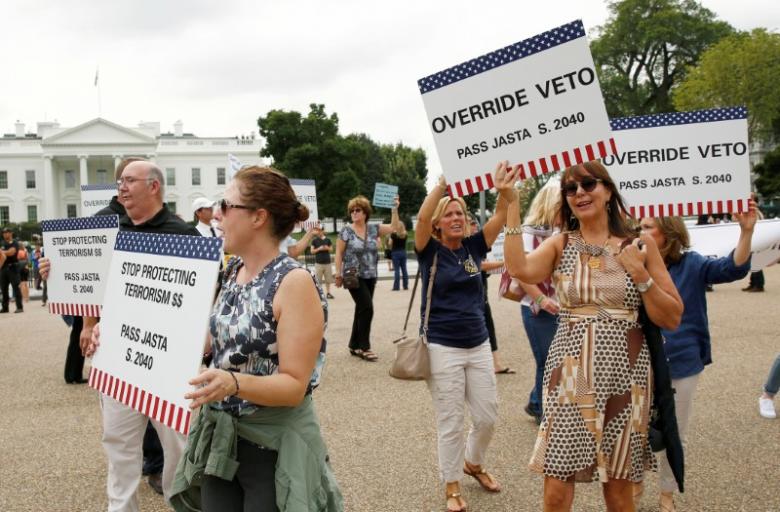Washington- Justice Against Sponsors of Terrorism Act (JASTA) and after a long debate, is finally under the spotlight of the international arena without any applause or welcoming — some critics said that the act was born dead.
It took JASTA around eight years before it came to light in September 2016 full of ambiguity on its foundation and the mechanism to apply it in the future. Even some questioned, what did Saudi Arabia do during this period to prevent the application of the act?
Exploiting the Foreign Sovereign Immunities Act
At the beginning, the advocates and insurance companies failed to sue Saudi Arabia and hold it responsible for 11 September attacks. Several lawsuits were filed in the U.S. courts but were lost because of the Foreign Sovereign Immunities Act because these courts rejected the allegations.
Then, the advocates were compelled to come up with the JASTA and to pursue passing it in the U.S. Congress to be legalized. The group insisted to indulge the name of Saudi Arabia in supporting terrorism despite the absence of any connection for Saudi Arabia to 11 September.
Pressure to Pass the Act
After U.S. President Barack Obama’s veto over JASTA, it returned to the Congress where a huge number of members were keen to disrupt the voting over the presidential veto in an attempt to avoid a possible conflict of interests between the executive and legislative institutions – the advocates, however, were stronger.
Saudi Movements
During the past years, Saudi Arabia worked hard to respect international regulations and implement them through common interests among the countries. The Kingdom showed keenness to reinforce relations with the U.S. which goes back to 60 years of mutual respect and cooperation in several fields: security, economy, education and health.
On the level of 11 September 2001, Saudi Arabia and the U.S. cooperated in the military field to combat terrorism.
Furthermore, the 18 pages on 11 September issued by the Federal Bureau of Investigation have shown no connection to Saudi Arabia with the attacks. As for JASTA, there is no direct mention of Saudi Arabia in the act but the pressure exerted by legal experts, victims’ families and media highlighted its name publicly.
Saudi Arabia, from its part, expressed concern over adopting the JASTA in the U.S., given that the international community relies in its international relations on the concepts of equality and foreign sovereignty.
Future of Economic Relations
Through official statements between the two countries, it is clear that commercial relations and economic exchanges seem to be on the safe side. According to the General Authority for Statistics figures, Saudi total exports to the U.S. reached USD21.473 million in 2015 while imports posted USD23.914 in the same year.
The total number of Saudi companies operating on the U.S. territory is around 170 Saudi companies of various activities: industrial, commercial and investment. On the other hand, there are around 126 U.S. companies operating in Saudi Arabia.
